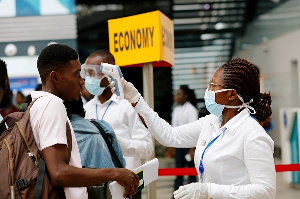FULL TEXT: Atiku’s speech at conference on strengthening democracy

Being the contributions of His Excellency Atiku Abubakar, GCON, Waziri Adamawa, Vice President of Nigeria (1999 – 2007) as a thematic discussant of a Paper titled “Party Politics and Political Integrity: The Role of Political Parties and Opposition in Democracy” presented by Prof. Bayo Olukoshi at the National Conference on Strengthening Democracy in Nigeria held at the Continental Hotel Abuja, Nigeria on Monday, January 27, 2025.
There’s no doubt that our democracy is at a crossroads. Put simply, it is at the risk of eroding completely. And it is not caused by one single person or one single administration. In fact, a number of us have been warning over the years that we may come to this pass if we lose our vigilance and fail to take corrective actions to protect and deepen our democracy.
At the risk of sounding modest, I doubt that there are many contemporary senior political leaders who have spoken out and done more to promote democratic governance in our country than me. In addition to public statements and presentations, I brought some actions to our courts which produced landmark judicial decisions intended to uphold democratic principles and practices.
Some of that effort was thrust upon me by circumstances of political struggles. But much of my effort was because of two things: my participation among other leaders in the struggles to ease the military out of power; and my deep and enduring belief that democracy is the best route to development and unity for our diverse country and peoples.
Democracy is characterised by, among other things,
⁃ people’s freedom to choose their leaders;
⁃ periodic elections, which partly ensure leaders’ commitment to the welfare of the governed
⁃ leaders’ acceptance of guardrails (without restraints leaders tend to accumulate and abuse power);
⁃ consequences for non-compliance, including rejection at the polls.
⁃ An independent judiciary to adjudicate disputes, and
⁃ In a presidential system, checks and balances among the three branches of government.
One thing we can’t seriously dispute is the serious decline in governance consistent with the erosion of people’s freedoms to choose leaders. Nostalgic references to Firstst Republic’s development strides relative to the subsequent periods are indicative of this decline.
The deterioration in people’s freedom to choose their leaders has led to what many now regard as state capture in our country, the gravest consequence of which is the increasing difficulty in removing those in power through democratic means.
This conference is, therefore, very germane indeed. Change through democratic means is still better for democracy and development to endure. The work being proposed by the organisers of this conference is vitally important for safeguarding and deepening our democracy.
My view is that there are five (5) critical tracks that must be addressed, namely institutional capacity of parties, normative acceptance by party members; consequences for non-compliance; and judicial reform.
1. Institutional capacity: democracy can’t be sustained without strong political parties, especially opposition parties. Parties need to be strong and democratic enough to be able to fulfil their roles. Ownership of parties by or their subordination to individual big men is the antithesis of democracy. Party supremacy is critical. But party supremacy can’t be achieved through the current funding model for our parties. Funding by governors and a few wealthy individuals is not a democratic model. As we know, he who pays the piper dictates the tune. Funding must be democratised. Members must invest in and co-own parties. When people start from the point of view that “Tinubu is rich or Peter Obi is rich or Atiku is rich, so I don’t have to contribute”, they surrender to the big man’s dominance of parties. In more effective democracies, parties and candidates raise funds from the mass of members and supporters.
When people invest in something, they tend to be more engaged with it. So, our people, especially party members need to be enlightened.
The transition to truly democratised parties won’t be easy but must be begun. Could we consider some public (government) funding of parties during the transition period? Perhaps proportionate to each party’s elected officials in the legislatures to avoid parties springing up just to collect public funds?
2. Normative acceptance (compliance by members, especially leaders) of party rules and the country’s laws. Laws that are not obeyed cannot effectively influence people’s behaviour. Party members, especially leaders, must subject themselves to party supremacy and the rules of the game. Democratizing funding will help to get leaders to abide by the rules. And so will:
3. Consequences for non-compliance: It must be made costly to ignore party supremacy/rules. Elected members decamping must vacate their seats. That should not be open for discussion/debate when it happens. And, more broadly, electoral malpractice generally must be punished rather than rewarded. These are necessary for political integrity.
4. Coalition-Building: In addition, opposition parties must realize that it is extremely difficult to dislodge a governing party, however unpopular it may be and however fed up the people may be with it. Coalition-building and outright mergers are critical for building the capacity of the opposition to achieve that goal. Our own history and examples from other countries prove that.
5. Judicial reform to curb judicial recklessness. In a period of less than 20 years the Nigerian judiciary has moved from being the beacon of democratic sustenance to becoming, arguably, the biggest threat to Nigeria’s democracy. That must change. The same judiciary that affirmed the primacy of parties in choosing their candidates and leaders now sanction and indeed promote destruction of parties by a few, and in some cases, a single individual with a personal agenda. The judiciary also seems to have replaced the voters in choosing our leaders. The involvement of the judiciary in electoral disputes was intended to affirm the choice of voters. But the judiciary, even at the highest levels, twists and contorts to find technicalities to deny voters their choice rather than affirming the voters’ choices.
I know enough of history to understand that when democracy dies, the judiciary and its leadership do not necessarily survive intact. The judiciary survived the implosion or death of our Firsts Republic democracy mainly due to the presence of strong independent justices. It wasn’t for want of trying. However, as the corruption of every facet of our society deepened, the judiciary soon followed. And it is, perhaps, the most dangerous because there is nowhere else for the aggrieved to turn to. No one is there to check the excesses of the other branches of government. If the rot in our judiciary persists without severe consequence for the perpetrators, our parties and our democracy are unlikely to survive.
Let me conclude by saying that it will be difficult for those currently in power to accept these reform proposals but no one or party stays in power indefinitely. Besides, reforms should not be focused on just today but on the future, as well.
Source: www.mynigeria.com





